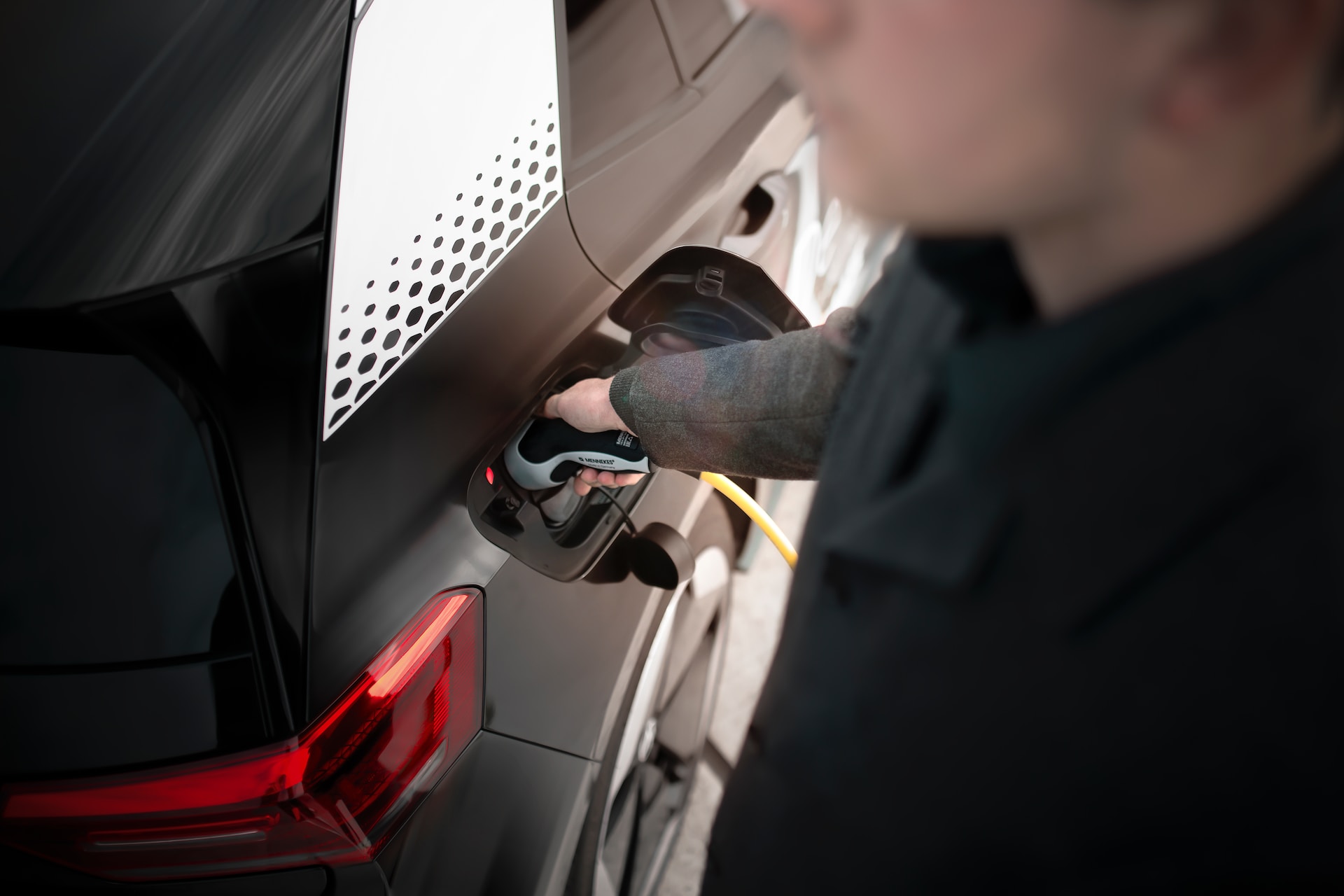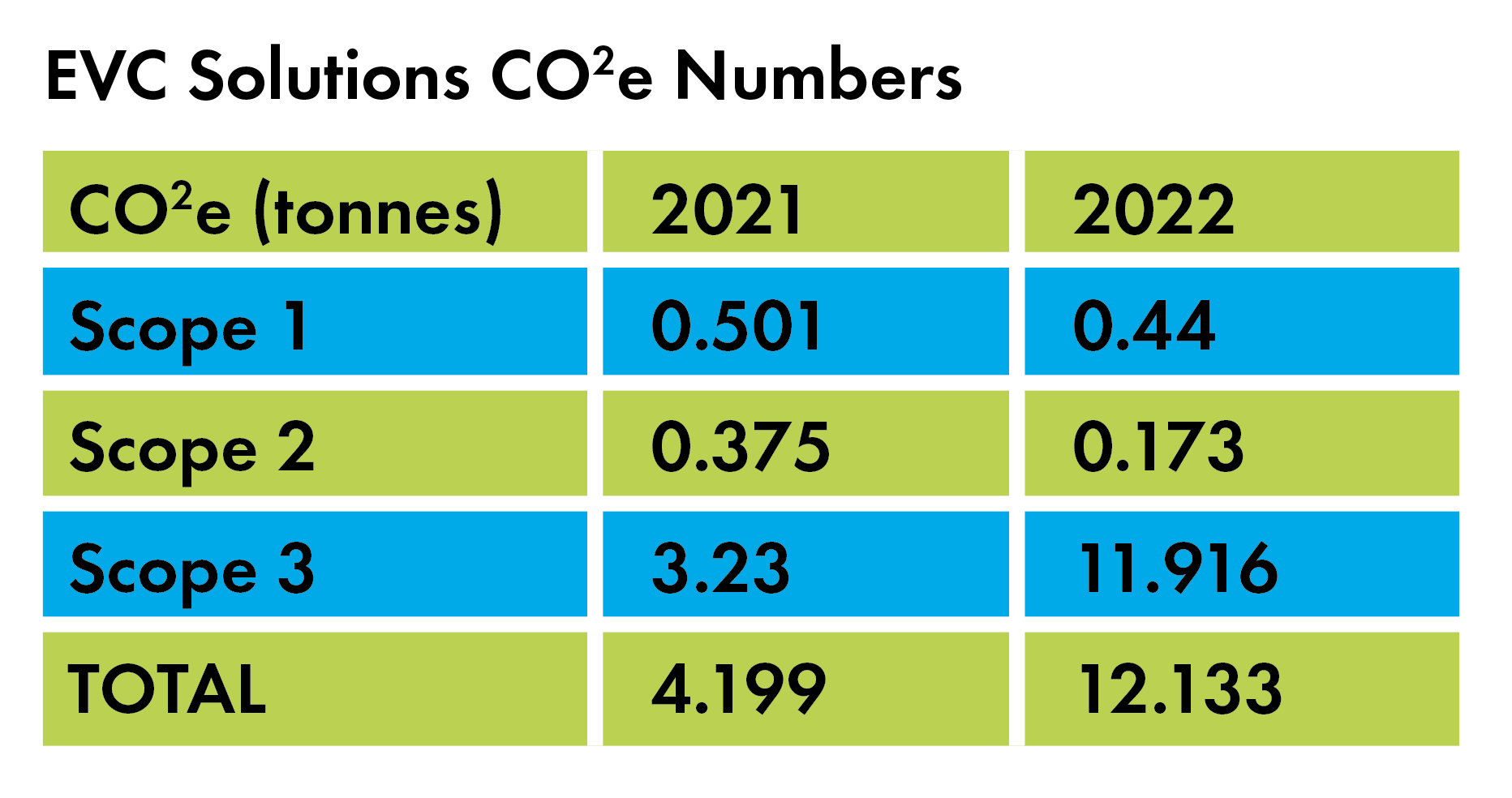
Carbon Footprinting and earning the right to do business by running a responsibly led and focused Company.
When we conceived of our business back in 2019, one of the key objectives we set ourselves was that, the CO2 footprint we created through our activity must be much lower, by factors of 10 plus, compared to the CO2 output avoidance we would enable our clients
to achieve through charging their vehicles from EV Charging systems
we install across the UK.
We are trying not to get into polemic discussions on being a ‘sustainable business’, or any one of many other titles we could use.
However, our expectation is that technologies we are deploying as partners to our clients transitioning to BEV’s from ICE vehicles must make sense when measured as some sort of carbon intensity level and is not making things potentially worse.
So, in this White Paper, let’s take that question and see where we have arrived at, based on our business results and CO2 footprint for 2022.
A big challenge micro-businesses face, particularly when growing really quickly, is that of managing a carbon footprint, measured in absolute terms (tonnes of CO2e).
Put simply, measuring of Scopes 1/2/3 are exactly that.
I’m an advocate, in certain circumstances, of measuring the three ‘scopes’ in terms that look at them as a ratio of economic output, say per £ of sales revenue; or per unit produced.
It is understood that we collectively need to reduce the aggregate output of CO2e, to protect the planet and mitigate global warming consequences, however, that by proxy is connected to some measure of human activity and business endeavour.
To my mind it is therefore legitimate to look at both the growth, or shrinkage, in a set of activities and also the impact of the products and services a business is supplying or offering.
Clearly it is important to measure and report consistent with the accepted protocols, but equally important is the opportunity for a business to understand which are the right ‘levers’ to pull in terms of optimising business activity to make the greatest impact on driving the right services and innovations toward reducing CO2e.
During the course of 2022, EVC Solutions CO2e footprint yielded the following, in comparison with the equivalent figures for 2021:

The major changes resulting in this data were associated with an increase in the number of installations carried out by the Company, in short, more charge-points were provided to our clients, which clearly is our mission, both economically and to spearhead the creation of client private infra-structure for charging their vehicle fleet. This of course provides them with the opportunity to mitigate their own CO2e output.
So, if we now look at figures to show our CO2e on a per-capita basis; our own CO2e footprint per charger installed, was 0.063 in 2021 and in 2022 this was 0.069, measured in tonnes/charger.
Typically a BEV will travel 3.5 miles per kWh.
Through our Charge-point Operating System platform (EVC Connect), we are able to measure the number of kWh of electricity consumed during charging events. This was 400,000 kWh, for the year of 2022. Using the factor of 3.5 miles per kWh, this equates to 1.4 Million miles.
Based on averages, this equates to 102 tonnes of CO2e emitted to generate and distribute the electricity required to travel that distance, by the vehicles charged via installations made by EVC Solutions during the year.
Obviously there is a displacement of petrol and diesel fuel, which would have been required and again, using averages, this would be around 337 tonnes of CO2e.
So, the net difference would be a saving of 235 tonnes of CO2e.
There are many ways to look at the ‘benefit’ created, but a simple ratio of the CO2e ‘avoidance’ vs the CO2e footprint of EVC as a business, is one way to do this.
That calculation would be 235/12.14, or a ratio of 19.3.
So an almost 20:1 benefit to the balance of CO2e, as a consequence of the business activity of EVC Solutions.
Our primary focus for the future, is to build on that and the most effective way this can be achieved will be through improving the operational efficiency of the CO2e installation process.
This in part means moving over to a BEV fleet of vehicles carrying out the installations and shortening the average distance travelled between installations and an increase in the average number of charge-points installed at each job site.
These changes are built into our business plan going forward and we look forward to reporting these data as part of our mission for the coming year.
The 2022 operating year for our business represents the first year of being at some level of scale where we can take a look at what we’re achieving and we hope to build on this, earning the right to grow, first of course.
